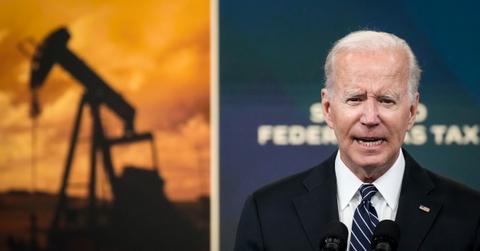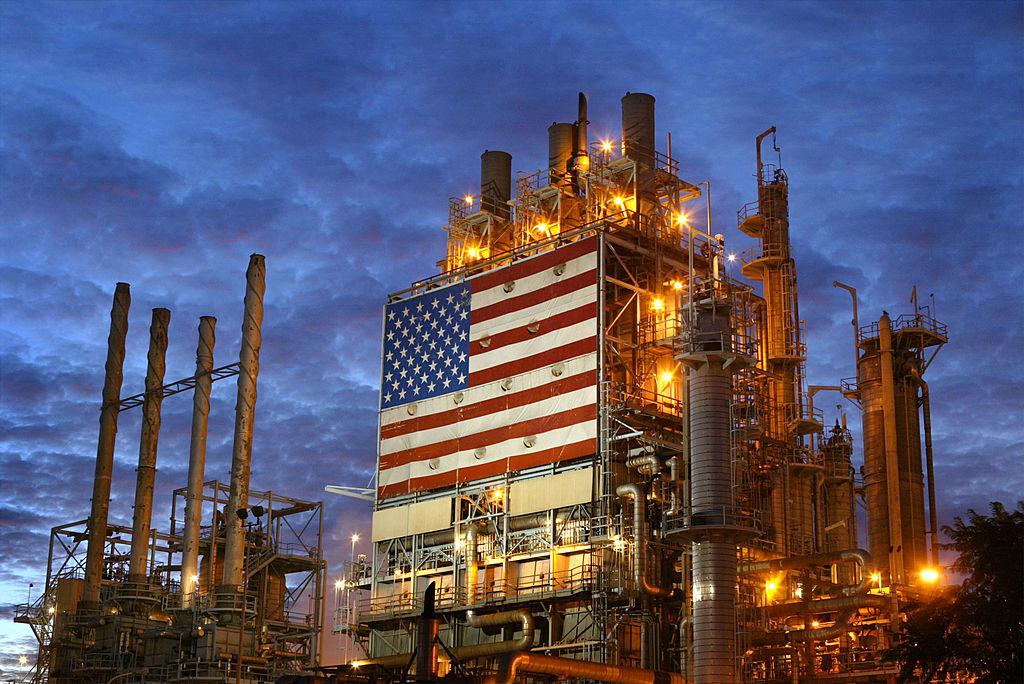Did Biden Send Oil to China Despite Rising U.S. Gas Prices?
Reports suggest that oil from the SPR is being diverted to China. Did Biden send oil to China and is he to blame for the steep rise in U.S. gas prices?
July 6 2022, Published 8:48 a.m. ET
Earlier this year, U.S. President Joe Biden announced the release of 180 million barrels of oil from SPR (Strategic Petroleum Reserve). The action was expected to bring down oil prices and by extension gas prices. However, U.S. average gas prices hit a record high last month and surpassed $5 per gallon. Now, reports suggest that the oil from the SPR is being diverted to China. Did Biden send oil to China and is he to blame for the steep rise in U.S. gas prices?
In March, Biden ordered the release of 1 million barrels of oil from the SPR every day for six months, beginning from May. It was the largest release from the SPR in history and was preceded by another release in 2021. The 2021 oil release was a coordinated move with other oil importers like India, South Korea, and Japan. However, the decision to release oil from strategic reserves in 2022 was more or less a unilateral move.
The U.S. SPR fell to multi-decade lows.
Recently, the U.S. SPR fell to a multi-decade low amid the release. The oil reserve release was expected to ease the oil shortage following curbs on Russian oil and gas exports. However, Reuters has reported that the oil has found its way into Europe and Asia.
Did Biden send oil to China? It looks likely.
The Reuters report didn't mention that the oil was sent to China even though some social media users and other media reports say it was. However, it wouldn't be surprising if China was indeed the recipient of some of the oil. While the oil release was primarily meant for U.S. refineries, markets expected some of the oil to eventually land in other countries.
S&P Global reported after Biden’s announcement of the SPR release in March that a feedstock manager at a Taiwanese refiner said, “U.S. refinery systems prefer heavier crudes anyway so [we] expect strong bidding for such grades from the SPR [by U.S. end-users and traders] and increased availability of surplus lighter crudes for international trades.”
Others expected the SPR release to lower the price differentials between different grades of crude oil as it would lower U.S. crude oil imports. The U.S. became a net energy exporter in 2019 and continued to do so in 2020 and 2021. Former President Donald Trump saw energy exports as a key moving part to bridge the country’s massive trade deficit.
China has increased imports of U.S. oil.
As part of Trump's trade deal with China, the world’s second-largest economy scaled up its purchases of U.S. energy and agricultural products to bridge the trade deficit, which is heavily in China’s favor.
Meanwhile, Biden has blamed the U.S. oil and gas industry for profiteering from higher oil prices. While crude oil prices are still way below their all-time highs, average gas prices in the U.S. surged to their all-time highs. This is partially due to the rise in refining margins.
The U.S. oil and gas industry responded to Biden’s call with a sarcastic tweet. The association alluded that U.S. gas prices are high because of the rise in global crude oil prices. Even Amazon CEO Jeff Bezos slammed Biden for his call to gas station companies to lower gas prices.
On his part, Biden has been taking measures like the SPR release and now the proposal to temporarily suspend the federal gas tax. However, these measures haven't had much of an impact on U.S. gas prices yet. Also, even if the SPR reserves have gone to Asia and Europe, it would help increase global crude oil supplies and put downwards pressure on prices, which would mean lower gas prices for U.S. consumers.


